Nobel Prize 2016 Live Stream: Laureates To Receive Awards In Ceremonies In Sweden, Norway
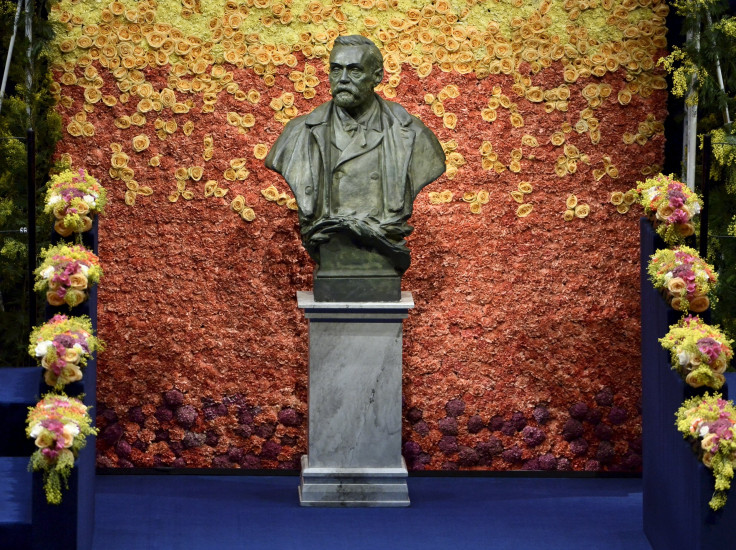
The Nobel Prizes in physics, chemistry, medicine, literature and economics will be handed out to this year’s winners during a ceremony at the Stockholm Concert Hall in Sweden at 4:30 p.m. CET (10:30 a.m. EST) Saturday. The peace prize ceremony, meanwhile, would be held at the Oslo City Hall at the Norwegian capital on Saturday afternoon (7:00 a.m. EST).
The award ceremony in Stockholm can be viewed here, while the one in Oslo can be seen here.
Each Nobel Prize consists of a diploma, a gold medal and a check for 8 million Swedish kronor ($870,000).
Here’s a brief rundown of this year’s winners:
The Nobel Prize in Physics
The physics Nobel was awarded to David Thouless from the University of Washington, Duncan Haldane from Princeton University and J. Michael Kosterlitz from Brown University for their work related to the study of exotic matter. The three physicists, all of them born in the United Kingdom, came up with the mathematical framework to explain properties of unusual phases of matter such as superconductors, superfluids and thin magnetic films.
Their discoveries also helped scientists design new materials.
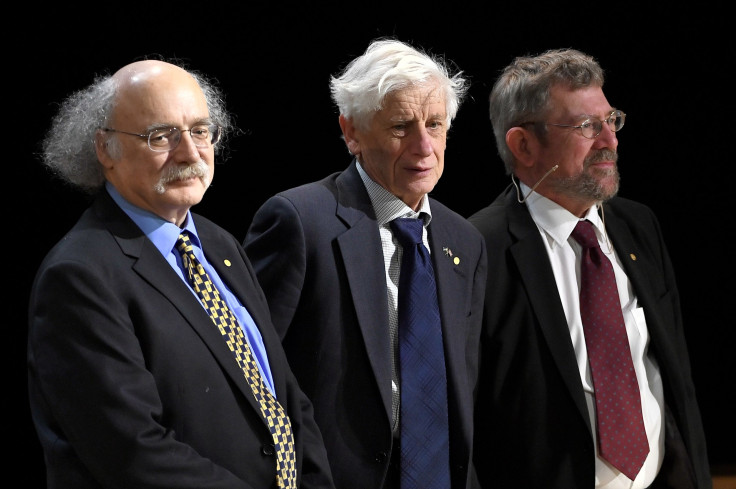
“Over the last decade, this area has boosted frontline research in condensed matter physics, not least because of the hope that topological materials could be used in new generations of electronics and superconductors, or in future quantum computers,” the Royal Swedish Academy of Sciences, which awards the physics Nobel, said in a statement in October.
The Nobel Prize in Chemistry
Three scientists — Jean-Pierre Sauvage , J. Fraser Stoddart and Bernard L. Feringa — won the chemistry Nobel for the design and synthesis of nanomachines made of moving molecules.
These “molecular machines” may one day be used in the development of new materials, sensors and energy storage and targeted drug delivery systems.
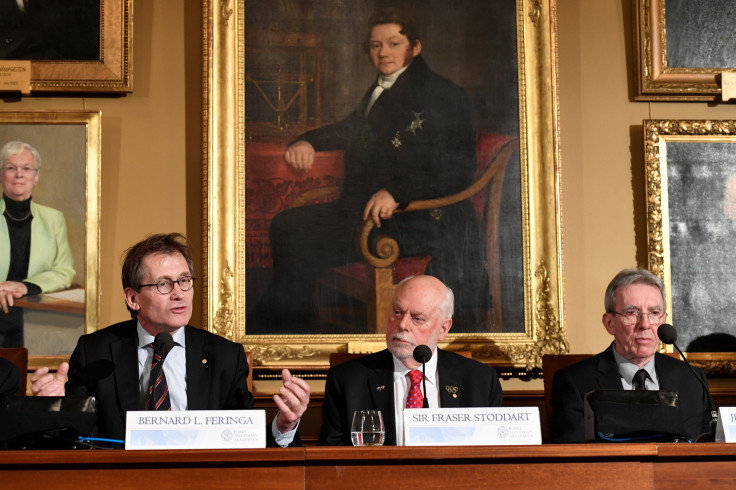
“[The Nobel Laureates] have taken molecular systems out of equilibrium’s stalemate and into energy-filled states in which their movements can be controlled,” the academy said. “In terms of development, the molecular motor is at the same stage as the electric motor was in the 1830s, when scientists displayed various spinning cranks and wheels, unaware that they would lead to washing machines, fans and food processors.”
The Nobel Prize in Physiology or Medicine
Japanese cell biologist Yoshinori Ohsumi was given the medicine Nobel for his discoveries of mechanisms for “autophagy” — a fundamental process for degrading and recycling cellular components.
Ohsumi identified 15 genes in yeast mutants essential for this process to take place.

“Ohsumi's discoveries led to a new paradigm in our understanding of how the cell recycles its content. His discoveries opened the path to understanding the fundamental importance of autophagy in many physiological processes, such as in the adaptation to starvation or response to infection,” the Nobel Assembly at Sweden’s Karolinska Institutet said in a statement. “Mutations in autophagy genes can cause disease, and the autophagic process is involved in several conditions including cancer and neurological disease.”
The Nobel Prize in Literature
American songwriter and rock icon Bob Dylan was given the literature prize for creating “new poetic expressions within the great American song tradition.”
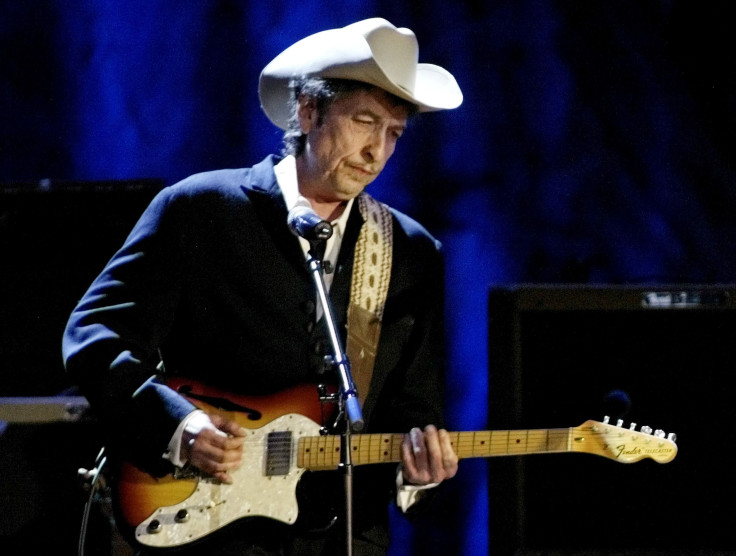
The Swedish Academy’s decision to award the prestigious prize to a songwriter — the first time this has happened — was, quite unusually, the most controversial Nobel Prize announcement of 2016. The controversy was further stoked by Dylan’s refusal to acknowledge the accolade for almost two weeks — behavior that an academy member termed “impolite and arrogant.”
Dylan — the first songwriter to win the award — recently announced that he would not be present at the ceremony in Stockholm due to “preexisting commitments.” He has reportedly sent a speech to be read during the event.
The Nobel Prize in Economics
The economics Nobel — officially known as the Sveriges Riksbank Prize in Economic Sciences in Memory of Alfred Nobel — went to Oliver Hart from Harvard University and Bengt Holmström from the Massachusetts Institute of Technology for their contributions to contract theory.
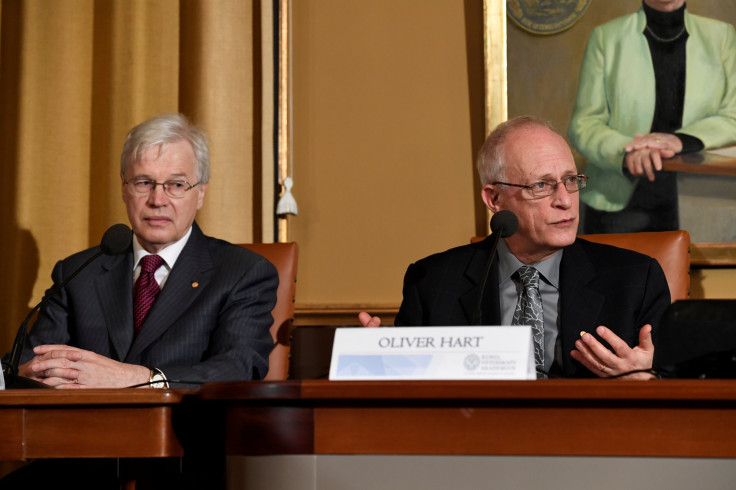
“This year’s laureates have developed contract theory, a comprehensive framework for analysing many diverse issues in contractual design, like performance-based pay for top executives, deductibles and co-pays in insurance, and the privatisation of public-sector activities,” the Swedish Academy of Sciences said. “Their analysis of optimal contractual arrangements lays an intellectual foundation for designing policies and institutions in many areas, from bankruptcy legislation to political constitutions.”
The Nobel Peace Prize
The peace award, traditionally the most controversial one, was given to the Colombian President Juan Manuel Santos for his “resolute efforts to bring the country's more than 50-year-long civil war to an end.”
The Norwegian Nobel Committee said the award was in recognition for his peace deal with FARC rebels, even though the agreement was eventually rejected by Colombians in a referendum.
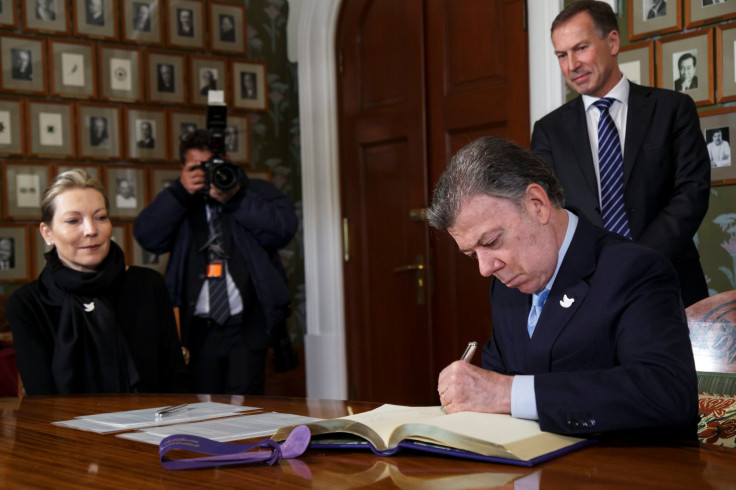
“People in Colombia interpreted it [the Nobel Prize] as a mandate from the international community to persevere, to continue striving to achieve a peace agreement,” Santos told reporters earlier this week. “It encouraged me, it encouraged our negotiators, but particularly it encouraged the Colombian people to press for a new deal.”
© Copyright IBTimes 2024. All rights reserved.






















